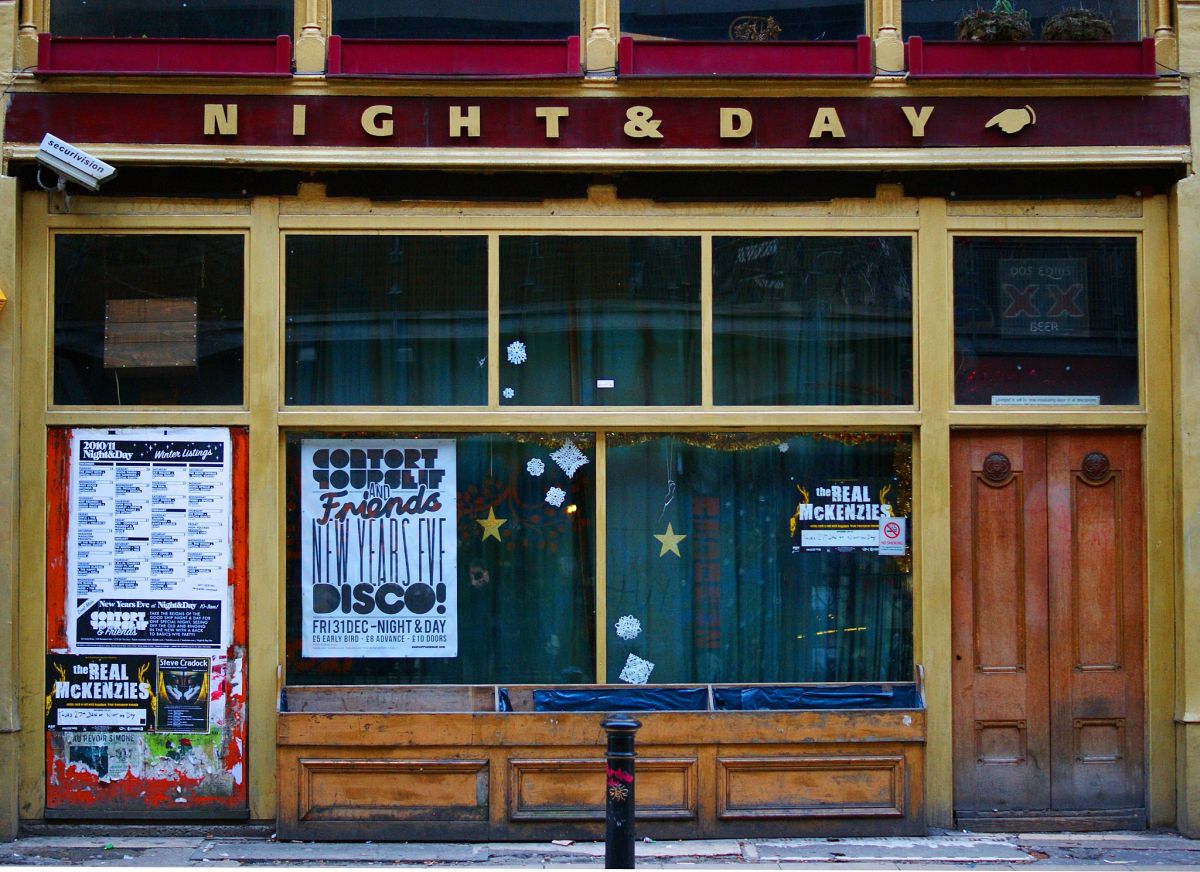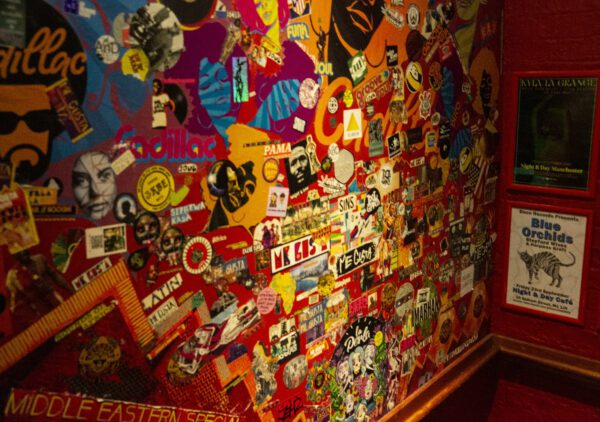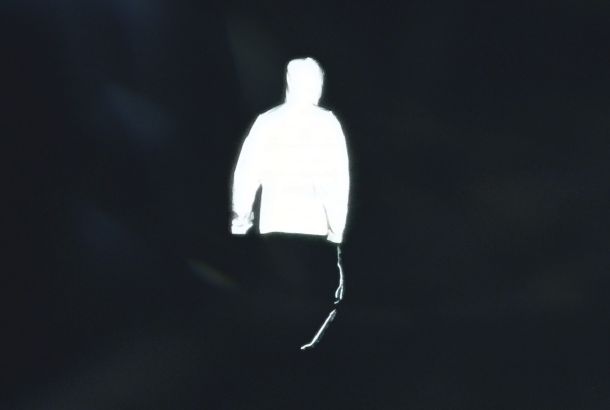Will silence Hit the North? – Night & Day Café and The Leadmill facing closure

Just a five minute walk into the Northern Quarter from Piccadilly Gardens, any music-lover will know to find Manchester’s Night and Day Café. Walking into the venue in broad daylight, there’s a sober sense of preparation for the evening, when this intimate space comes alive.
The walkway to the toilets is swamped with gig posters – ticket-stubs surrounding each wall, some dating all the way back to the venue’s opening almost 31 years ago – meaning you simply cannot escape the Café’s history. It is sown into the building. Just opposite the bar, there is an exhibit of Liam Graham’s 12 x 17cm creations, pieces of colourful art vibrantly accompanying the all-important centre-piece – the stage. Liam Graham is himself signed to the independent Waxing Crescent Records, and his various pieces are accompanied with a David Bowie print by famed Mancunion illustrator Stanley Chow. This is a truly creative space, furnished accordingly.

Sitting down to speak with Reece Ritchie – the In-House Promoter here at Night & Day – we discussed much of what makes this venue so special to so many here in Manchester: “Manchester isn’t Manchester without music. The only reason it’s such a musical city is because there’s a gig on every night”.
The venue itself has played host to an extraordinary variety of large commercial acts, including both Elbow and James Bay. The venue is a well-connected one, regularly being praised by the likes of Matty Healy of The 1975 and Everything Everything, who’s initial rehearsals and recordings began downstairs. Just behind where we sat, Reece was keen to point out a poster for Nile Marr, playing on February 3 of next year.
The venue is famed for being a springboard for talent: “We were the first venue to take a punt on My Chemical Romance in the UK” – a clear point of pride for all involved at the Café, playing their part in the momentous ‘emo’ group’s rise to fame. The same can be said for the ascension of Wet Leg, who played a gig here – surprisingly not sold out for anybody who has tried to see the Isle of Wight group in their last tour – over a year ago, just prior to the meteoric rise of their debut single, ‘Chaise Longue’. “There are tickets available for the bands of tomorrow.”
Having mentioned he was running up to six events per week up until recently (given the approaching end of a typical tour cycle), Night & Day still provide an incredibly lively supply of both established and up-and-coming artists to the burgeoning Northern Quarter. The intimate venue creates a unique experience for gigs, with the ceiling flanked by glitter-balls recognisable from any live-footage. Reece made sure to stress the importance of young bands in their rotation: “We’re always looking at young talent. That’s what Night & Day has always been built on.”
As an ex-Manchester University student himself and former editor of The Mancunion’s Music Section, Reece still maintains connections with the ‘student scene’. As he puts it, “That’s really the ethos; we are all about young live bands.” Just last September, King Violet headlined the Café with a bill full of bands provided by the University’s Gigs and Bands Society. “It’s my job to connect those young bands who make great music, but maybe don’t know how to put it in front of 250 people”.

Last year the Northern Quarter stalwart were issued with risk of closure by Manchester City Council. Ironically, for a bar prided on its creation of sound, a noise complaint dispute placed the beloved gig-venue into a long list of threatened small venues across the UK. With a ruling not expected until at least the January 17 2023, uncertainty seems to dominate the air. “Promoters have to think about, I have to think about it, the bands themselves have to think about it”, Reece commented.
There is also a genuine sense of struggle against an economic environment where seemingly, the last thing on the agenda is creativity and fun. With inflation rates soaring over 10% alongside the absurd increases in domestic bills, it is sometimes difficult to be optimistic for our plucky, smaller venues, reliant of course on paying customers. However, Reece was quick to remark upon how important the support of the campaign had been: “It’s wonderful and the team here are so so grateful”. Celebrity endorsements and a petition at over 86,000 signatures strong have helped along the way, alongside many a strong-willed Twitter exchange in the Council’s direction. “It makes all of the effort to fight it worth it”.
Just an hour away, across the Pennines, a similarly frustrating ordeal is playing out on the front-line of live music. The Leadmill is Sheffield’s oldest music-venue and club, having played host to the flowering careers of the likes of Pulp and Arctic Monkeys prior to both bands’ infamy, as well as other renowned groups from the city, such as The Human League and Cabaret Voltaire.
First opened in the spring of 1980 as The Leadmill Community Arts Cooperative, the venue primarily functioned as an arts-centre oriented towards the young and unemployed – a grassroots organisation formed purely as a space for creativity. Autumn of the same year saw the venue take shape, with summer of 1982 seeing the ‘Festival Against Unemployment’ rock the venue – true enough to ‘The People’s Republic of South Yorkshire’.
In March of this year, the venue’s landlord issued a year’s notice for eviction, a shocking attempt at prising the venue out of good hands and into the clutches of a more corporate space. Sparking similar outrage to that of Night & Day, The Leadmill’s struggle with their landlord has inspired the likes of ex-Labour leader Jeremy Corbyn, comedian Eddie Izzard, and even infamous Tory Culture Secretary Nadine Dorries to call for a resolution to the dispute, alongside a plethora of artistic names (comedian Joe Lycett and The Libertines frontman Peter Doherty to name but a few).
Currently, the Save the Leadmill campaign petition sits at just over 46,000 signatures, but there is little indication that this is taking serious effect as of yet. The venue itself is a piece of Sheffield music-history, a legacy littered with oddities: from a Jarvis Cocker directed pantomime in 1982, to the Arctic Monkeys’ secret album launch in 2007 during a customary club-night – a rallying cry at the centre of the campaign to halt the eviction.

The venue itself is not only an artefact of a Sheffield music-scene been and gone, but – much like Night & Day in Manchester – an ever-present and active part of the South Yorkshire music scene. Tramlines festival in Hillsborough Park has its second stage named after the venue, and it regularly wins Exposed Awards’ Best Live Venue title (victorious as recently as 2019). Just last summer, local band Minds Idle – a charming 60s revival pop machine lead by talisman Ted Mitchell – sold out their smaller room, joining the ever-growing list of young talent to grace the venue.
Club nights at The Leadmill are a mainstay for any Sheffield teenager, as are gigs, with it serving as one of the last refuges in South Yorkshire for a major touring act – particularly if the artist or band in question lean towards the ‘indie’ side of things (read that as you may). This falls despite that part of Britain often being forgotten en route up North in favour of Leeds’ Brudenell Social Club or Manchester’s 02 Ritz.

Sheffield’s music scene does not live or die by The Leadmill, as important as it is to its heritage. Venues such as the relatively new Sidney and Matilda and Delicious Clam do support bands and artists coming through their doors, as well as embracing touring artists. The likes of the new Desolate Spools record label (spear-headed by Adrian Flanagan, of Eccentronic Research Council and Moonlandingz fame) pushing to the fore the odd and interesting of Sheffield-based music prove the health of music in the region, as an electronica reimagining of the likes of The Human League sits on the horizon.
But The Leadmill, just like Night & Day Café, is an intrinsic part of Northern gig-culture. To lose either would be a catastrophe for any music lover, and as such these venues need protecting at all costs. Given the nature of being a young artist or band today, with literal pennies earned from Spotify listens, performing live is an integral part of any musician’s living. Artists and bands all over Britain will not cease to write, rehearse, and record the nation’s next adopted anthems; but without venues to inspire and host this country’s next generation, we risk more and more great artists getting lost in the algorithm. Spotify has its virtues, but nothing replaces a grassroots venue.
For anybody interested in supporting any of the campaigns mentioned, linked below will be petitions and any other relevant information.







